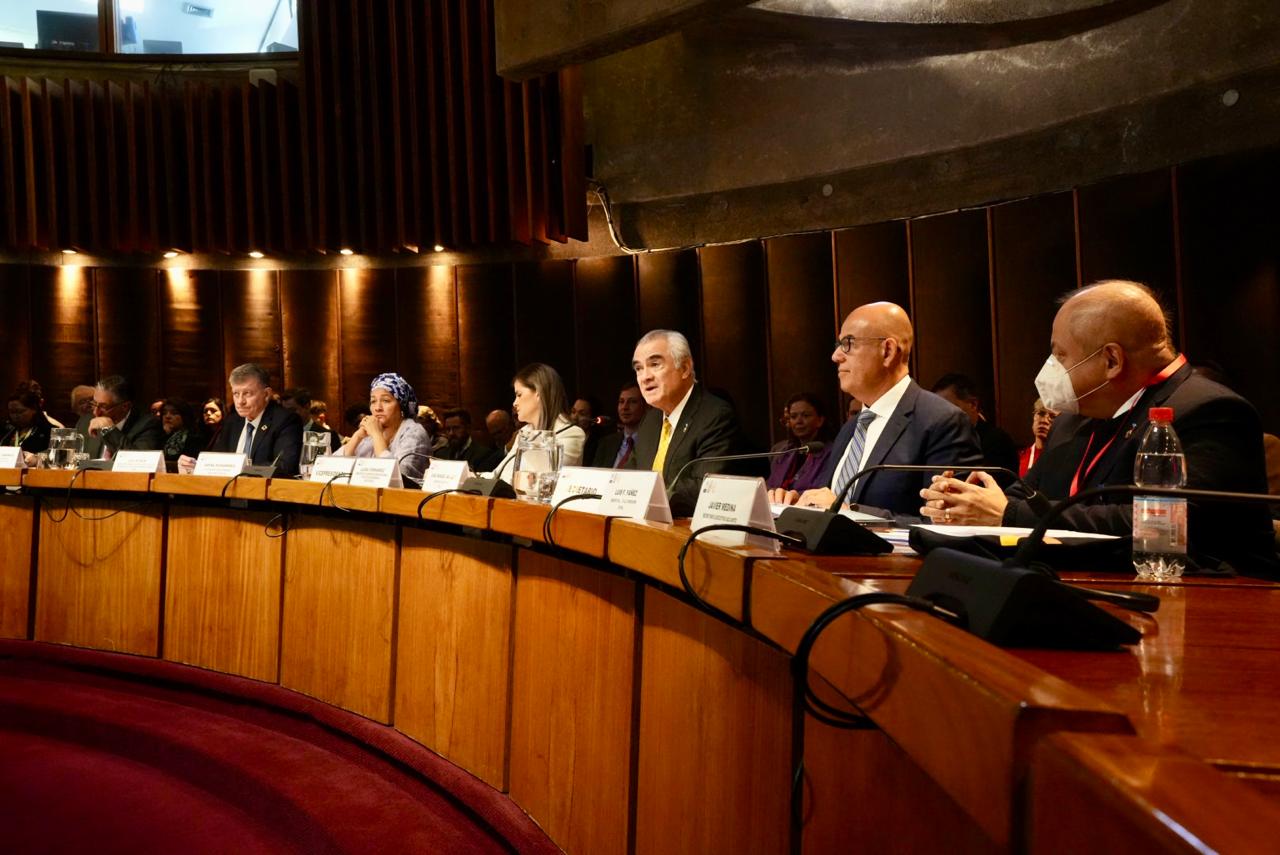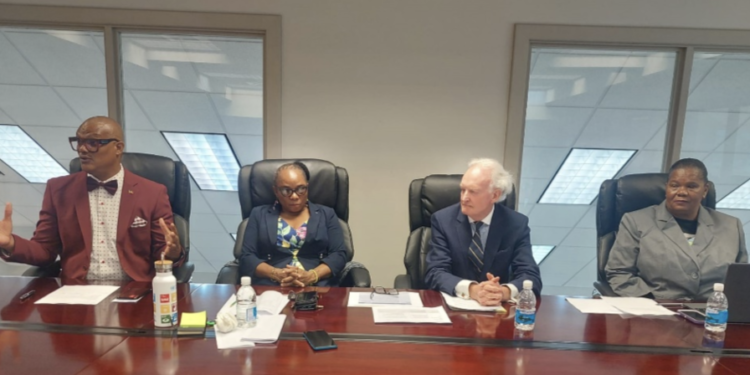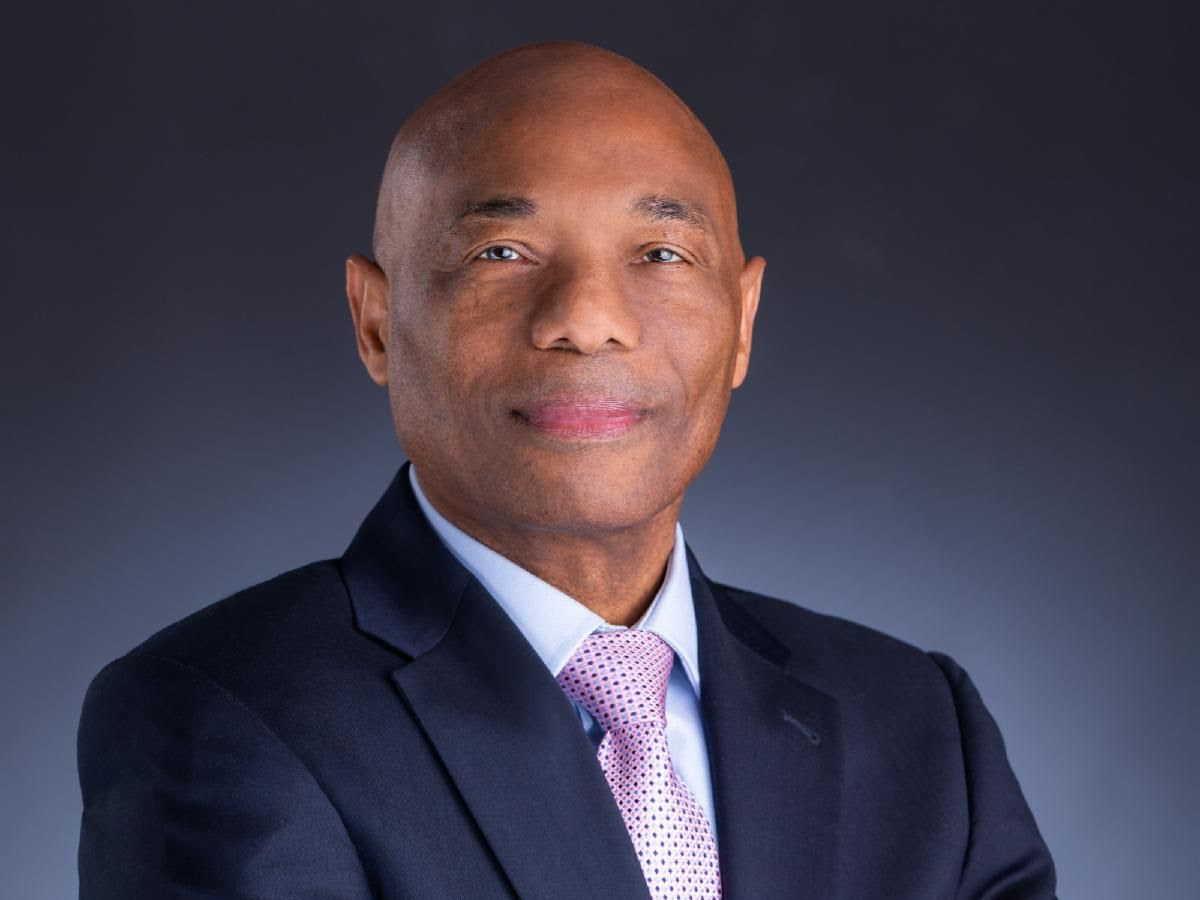By Desmond Brown – Executive Editor
ABU DHABI, United Arab Emirate, Jan 15 2017 – St. Lucia is making slow, but steady progress in its renewable energy transition plan, Minister for Infrastructure, Ports, Energy and Labour, Stepehenson King said.
The Caribbean island is hoping to achieve a target of 35 percent renewables by 2035.
“We are also hoping that by the year 2023, with the various components of renewable energy – wind, solar and geothermal – that we will be able to achieve at least 50 percent of the target set for 2035,” King told Caribbean News Service (CNS).
“We have done a fair amount. It is not an aggressive move but it is a steady move. And with even greater efforts within the various departments responsible for energy, we are hoping that we can make the necessary transition to the 35 percent by 2035.”
King, who spoke with CNS on the sidelines of the 7th Assembly of the International Renewable Energy Agency (IRENA), which ends here on Sunday, said a wind farm, with a potential capacity of 12 MW, is being set up on the island.
In April 2015, residents witnessed the erection of a test tower to help assess the potential for the construction of the wind farm – the first utility scale renewable energy project for the country.
The island is also continuing to work with the World Bank, the government of New Zealand and an Israeli geothermal company on a long-awaited geothermal project.
“As you know St. Lucia has the sulphur springs and we do have the potential for geothermal energy. What we have not been able to ascertain is the sustainability of that potential and to be integrated into the national grid. However, with the necessary World Bank assistance we are now on the verge, and hopefully later this year, active exploration will proceed to generate at least 30 MW of electricity,” King said.
“There is also a (3.2 MW) solar farm which the utility company is actively engaged in setting up in the south of the country pretty close to the international airport.”
“One of the greatest successes of St. Lucia is the fact that we have been able to bring the utility company, which is not a public-owned corporation, they have come to the table and they are involved. The utility company has certainly come to the table and have been participating in a very meaningful way in all of the discussions and understands its role in the transition from fossil fuels to renewables,” King added.
In preparation for the transition to renewables, King said that a number of private sector entities have taken the initiative to retrofit their infrastructure with PV solar panels and are now cashing in on the benefits of having an energy mix comprising of solar and the fossil fuels-powered generation.
Meantime, a new comprehensive publication (), released by IRENA on Sunday, noted that falling costs, driven by innovation in technology and policy, is spurring renewable energy deployment and with it a myriad of socioeconomic benefits.
“Renewables are gaining ground by nearly every measure. Accelerating the pace of the energy transition and expanding its scope beyond the power sector will not only reduce carbon emissions, it will improve lives, create jobs, achieve development goals, and ensure a cleaner and more prosperous future,” said IRENA Director-General Adnan Z. Amin.
The publication highlights how global investment in renewables has steadily grown for more than a decade, rising from less than US$50 billion in 2004 to a record US$305 billion in 2015. Despite this enormous growth, current investment and deployment levels are making headway to meet international carbon reduction targets.
“As we advance deeper into a new energy paradigm, we need to pick-up the pace of our decarbonisation efforts. Policies and regulations continue to remain crucial to this end and to develop the renewables market,” explained Mr. Amin.
“We are seeing more and more countries hold auctions to deploy renewables, and as variable and distributed sources of renewables take-on a greater role, regulators have implemented changes to enable grid integration at scale. Heating and cooling, and the potential of renewables for transport, are areas where future efforts are needed.”
Like our Facebook page https://www.facebook.com/CaribbeanNewsService/
Follow us on Twitter https://twitter.com/CNewsService
Follow us on Instagram https://www.instagram.com/caribbeannewsservice/




